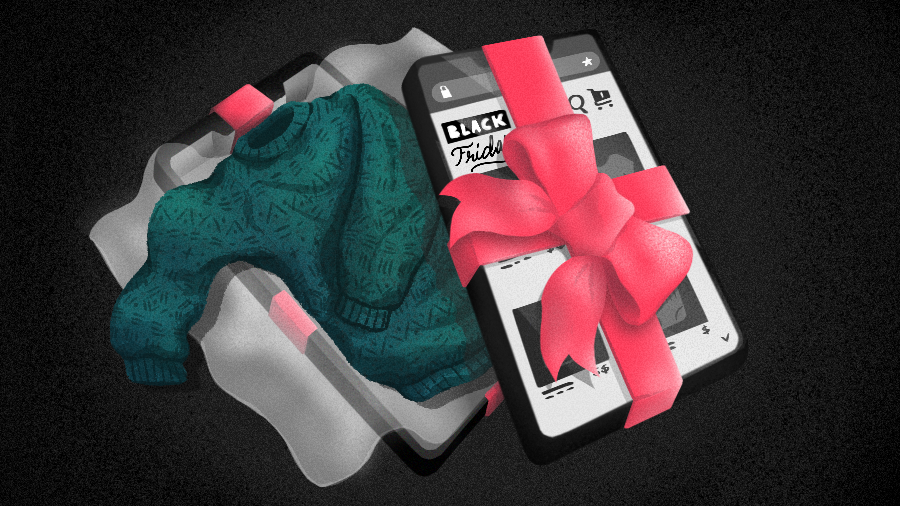Black Friday 2020 is a golden opportunity for startups that offer e-commerce technology. That’s because U.S. retailers are gearing up for a shopping extravaganza this year that’s expected to take place amid unprecedented demand for online options.
Subscribe to the Crunchbase Daily
The very digital nature of this year’s Black Friday has many brands selling to customers in ways they may never have before, such as direct-to-consumer, by offering curbside pick-up, or by revamping their customer service, according to e-commerce experts.
At the same time, retailers are bracing for potential website outages and logistics issues due to heightened online shopping demand. “Black Friday is expecting to be a peak on top of a peak on top of a peak,” Thomas O’Connor, a senior director, analyst with Gartner, told Crunchbase News.
There is a concern around delivery and if items will arrive on time. Holiday shipping deadlines are as early as Dec. 9 depending on the service is chosen, and that cut-off date has never been this early, O’Connor said.
“It is a huge component of what we are seeing,” he added. “If retailers aren’t able to get products out of their own facilities, carriers will be under pressure.”
Shopper engagement
Experts say the rapid shift to digital shopping this year, sparked by the pandemic, forced retailers to innovate in a few months what may otherwise have taken years. That rapid innovation, in turn, drove many of the new and follow-on venture investments in e-commerce startups this year.

Global investors pumped $3.3 billion into 301 deals this year for e-commerce startups. In the U.S. alone, that was $2.1 billion in 110 deals, according to Crunchbase data based on companies working in e-commerce platforms and retail technologies.
Some of the investments went to startups that are guiding retailers through the customer journey, particularly to leverage data for insights like predictive shopping, inventory management and product search.

A few of the biggest investments went into online marketplace Faire, which raised a $170 million Series E in October; India-based FreshToHome, which raised $121 million in Series C funding, also in October; and online marketplace OfferUp, which raised $120 million in March.
“Brands, for the first time, have to figure out how to have one-on-one conversations with the consumer,” Suzy President Avi Savar told Crunchbase News. New York-based Suzy, which raised a $12 million Series C in February, is a technology platform that gathers consumer insights and provides real-time intelligence.
“Not many brands had direct customer relationship management because it was mitigated by retailers,” Savar added. “It’s like what Caspar did with mattresses and Warby Parker did with glasses. We are still going to have big retailers, but online shoppers will be buying directly from the company.”
Gone are the days of in-person focus groups or asking people if they liked a movie as they exit the theater.
Although brands historically have e-commerce divisions, most are smaller teams with lower budgets. Now, that area is a top priority, Savar said.
One example is Israel-based Syte, which raised a $30 million Series C in October. The company has developed a product discovery platform that taps into data, such as visual, text and voice, to create individualized and memorable customer experiences, Syte co-founder and CMO Lihi Pinto Fryman said in an interview.
Bigger than just a conversion, retailers want customers to have a good experience whether they come into the physical location or go to their websites to purchase something. Therefore, they spend time and money creating looks to entice customers, she added.
For example, the search for a skirt will yield dozens of results, but a handful may include other items–blouses, accessories, etc.–to complete the look.
“When a customer uploads an image or clicks on an item, retailers want to know what will be the next item they will be searching for,” Pinto Fryman said. “If there is a good experience, and you create that loyalty, that will create the conversions.”
Keep the show running
Many retailers got an early start on Black Friday sales this year, with some even starting to promote deals in October. They are also likely to push online orders made later in December to in-store and curbside pickup, O’ Connor said.
Matt Nichols, a partner at Commerce Ventures, agreed that the biggest challenge will be shipping.
Even with the window for shipping moved up earlier, he expects to see a huge amount of people continue to buy online past the point of being able to receive it by Christmas. As a result, many retailers will rely on startups to provide the technology to make that work.
For example, Dallas-based Theatro, a commerce-backed software company, makes a voice-controlled mobile app platform for hourly employees. Communication between store associates was just one use case for the company, but demand for that use increased as more retailers adopted curbside pick-up, he said.
“Buying online and picking up in the store may be a savior for many retailers,” Nichols added. “And, a lot of the tools and tech for e-commerce will benefit nicely from the chaos.”
There’s also the issue with potential website crashes. Two years ago, retailers including Walmart and J.Crew, experienced website outages on Black Friday. The technical difficulties caused Walmart to lose an estimated $9 million in sales, while J.Crew was estimated to lose $700,000 in sales.
Todd Rychecky, Opengear’s vice president of sales for the Americas, said in an interview that website crashes may again be a challenge this year with the high volume of online shopping, and many of his clients are bolstering their networks in the event that happens.
“It’s not a matter of what, but when, and when will the problem be remediated—in five minutes or five hours,” Rychecky said. “Everything is putting stress on the network now that more people are shopping from home. If there is no network, there is no business.”
Meanwhile, retailers are prepping for what O’ Connor said is “likely to be a horrific returns season.”
“One of the trackers I watch is already showing foot traffic in stores starting to decline compared to last year,” he added. “When you look at that and then see all of the sales coming online, everyone will have to be prepared for a higher volume of orders to be placed in the final few weeks.”
Illustration: Dom Guzman

Stay up to date with recent funding rounds, acquisitions, and more with the Crunchbase Daily.




![Illustration of a guy watering plants with a blocked hose - Global [Dom Guzman]](https://news.crunchbase.com/wp-content/uploads/quarterly-global-3-300x168.jpg)
67.1K Followers